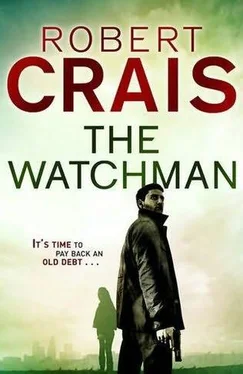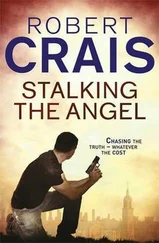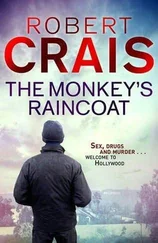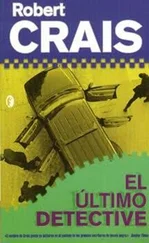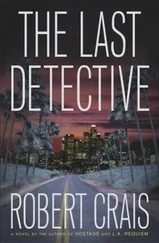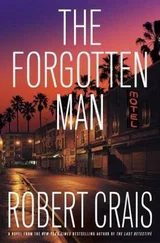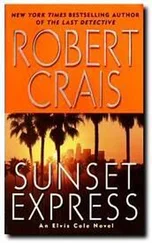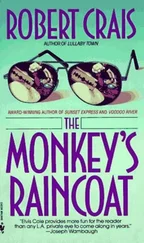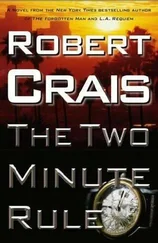She glanced at her sandwich again, then his.
“But you haven’t eaten. I haven’t finished.”
“We’ll eat in the car.”
Cole followed them out, said his good-byes, and watched them drive away. He did not ask Pike where they were going, and Pike didn’t say. He knew Pike would call him when they were safe.
Cole looked at his house, then considered his car. Joe Pike was the only thing that had been in Cole’s life longer than the house and the car. They met back when Pike was still riding a black-and-white and Cole was working as an apprentice to old George Feider, Cole still piling up the three thousand hours of experience he needed to be licensed as a private investigator. Pike had referred to George as Cole’s T.O.-his training officer. Bud Flynn had been Pike’s training officer when Pike was a rookie, and Pike had revered the man.
Cole found himself smiling. A few years later when Cole had the hours and Pike was off the job, George retired, so Cole and Pike pooled their money to buy Feider’s business, both of them agreeing Cole’s name would be the only name on the door. Pike had no intention of getting a license. He had other businesses by then and only wanted to help Cole part-time, saying without him covering Cole’s back, Cole would probably get himself killed. Cole hadn’t known whether or not Pike had been joking, but that was part of Pike’s charm.
If these people know who I am, they might try to find me through you.
Cole took a deep breath. He drew the air deep, expanding his chest until the pain made his eyes water, then he went back into the house.
They might try to find me through you.
Cole thought, Let’m bring it-I got your back, too, brother.
He went to work.
Pike cruised east on Sunset Boulevard into the purpling sky, driving easy for the first time in twenty hours, invisible in the anonymous car. When they passed Echo Lake with its fountain, dim in the twilight, Pike turned north into the low hills of Echo Park. The houses would be nicer east of the park, but the twisting residential streets to the north were narrow and the homes were clapboard shotguns. Prewar street lamps were flickering on when they reached the address.
Pike said, “This is it.”
A narrow grey house with a steep roof sat off the street. A covered front porch guarded the door and a one-car garage filled the backyard. Pike’s real estate friend had left a key under a potted plant near the door.
Larkin looked warily at the house.
“Who lives here?”
“It’s a rental. The owners live in Las Vegas, and they’re between tenants. When you get out, go directly to the front door.”
A sunset breeze out of Chavez Ravine stirred the warm air. Families were outside on their porches, some listening to the radio and others just talking. Pike heard Vin Scully, calling the game from nearby Dodger Stadium, Dodgers up over the Giants, five to two. Most of the neighbors appeared to be Eastern Europeans. Across the street, five young men who sounded Armenian were standing around a late-model BMW. They laughed together, and one of them spoke loudly, trying to make a point over the laughter.
Larkin didn’t move toward the front door. She stared at the house like it was waiting to eat her, then looked at the surrounding houses, then the five men.
Pike said, “It’s okay. Let’s go.”
Pike carried her bags. He could have carried his as well, but didn’t. He found the key, then let them into a small living room. A door to their right branched into a bathroom and a front and back bedroom. The little house was fully furnished and the interior was clean and neat, but the furniture was worn and the rooms were small. A single window air conditioner hummed in the living room, left on by Pike’s friend to cool the house.
Larkin said, “I’ve been thinking. No one knows where we are now, right? We have my credit cards. We have my ATM. We can go wherever we want.”
Pike dropped her bags.
“It has two bedrooms. Take whichever you want.”
Pike continued on through both bedrooms and the bath and kitchen, checking the windows and pulling the shades. Larkin didn’t touch her bags or pick a bedroom. She followed him, walking so close that twice she stepped on his heels.
“Just listen. We can take the Gulfstream. My father won’t care. We have a fabulous apartment in Sydney. Have you ever been to Oz?”
“You’ll be recognized. Someone at the airport, there’s Larkin Barkley in her jet.”
Pike opened the fridge. Two grocery bags, a case of bottled water, and a six-pack of Corona were waiting.
“My friend left this. Help yourself.”
“You’re being a prick. Okay, look-we have a house on the rue Georges Cinq a block from the Champs-Elysees. I’ll pay our way on a commercial flight. It’s not a problem.”
“Credit cards leave a trail. Airplanes file flight plans.”
Pike headed back into the living room, and Larkin caught up.
“I’ll take cash from the ATM. It’s really no problem. This place doesn’t even have a TV.”
The window unit made a heavy thump when the compressor kicked on, like someone had stumbled into the wall. The air blowing from the vent roared like a windstorm with a faraway metallic vibration. Pike turned it off. The silence from the dying air conditioner was filled by barking dogs, a motorcycle echoing between the hills, and the laughter of the men across the street.
Larkin looked horrified.
“What are you doing? Why did you turn off the air?”
“I couldn’t hear.”
“But it’s hot. It’s going to be an oven in here.”
She had crossed her arms, and her fingers had dug into her flesh. Pike knew this wasn’t about Paris or Sydney. It was about being scared.
Pike touched her arm.
“I know this isn’t what you’re used to, but we have what we need. Right here-right now-this is a safe place. We’re safe.”
“I’m sorry. I didn’t mean to be a bitch.”
“I’m going to get my things from the car. You okay alone for a few minutes?”
“I miss my dog.”
Pike didn’t know what to say about that, so he didn’t say anything.
Larkin made a tired smile.
“Of course. I’ll be fine.”
Pike turned off the lamps so he wouldn’t be framed in the door, then let himself out. He had left his bags so he could return alone to check his messages. If he needed to call someone, he wanted to speak freely. He climbed into the Lexus, then used his new phone to check the messages left on his old phone. Seven messages were waiting for him. Bud had left three in a row, all pretty much the same-
“Call me, damnit! You can’t just disappear with this girl! She’s a federal witness, for Chrissakes! They’ll have the FBI looking for you!”
Bud had left a fourth message about an hour after the first three. Pike noted Bud was calmer in the fourth message. He wasn’t shouting-
“Joe, listen, you have to check in. For all I know those bastards tagged you, and you’re both dead. Please don’t leave me hanging like this.”
Jon Stone had left the fifth message in a quiet and wary voice.
“This is Stone. You got heavy people worried, bro. Don’t call me back. Do not call. Stay groovy.”
Pike hesitated before deleting Stone’s message. Staying groovy had nothing to do with being cool. It was an expression used by small recon units and sniper teams in hostile terrain. They would tell one another to stay groovy when the danger level was so insanely high they popped amphetamines to stay awake and ready to rock twenty-four/seven, because anything less would get them all killed. Stay groovy; take your pill. Stay groovy; safety off, finger on. Stay groovy; welcome to hell. Stone had left a warning within his message, and Pike wondered why.
Читать дальше
